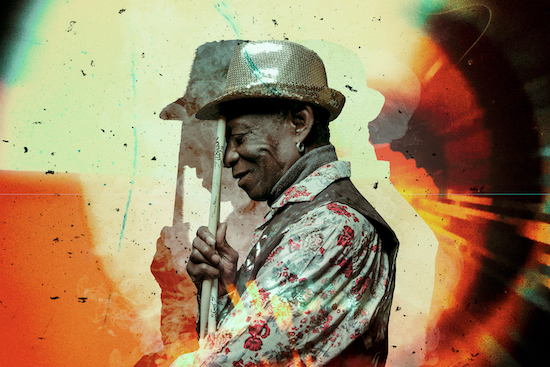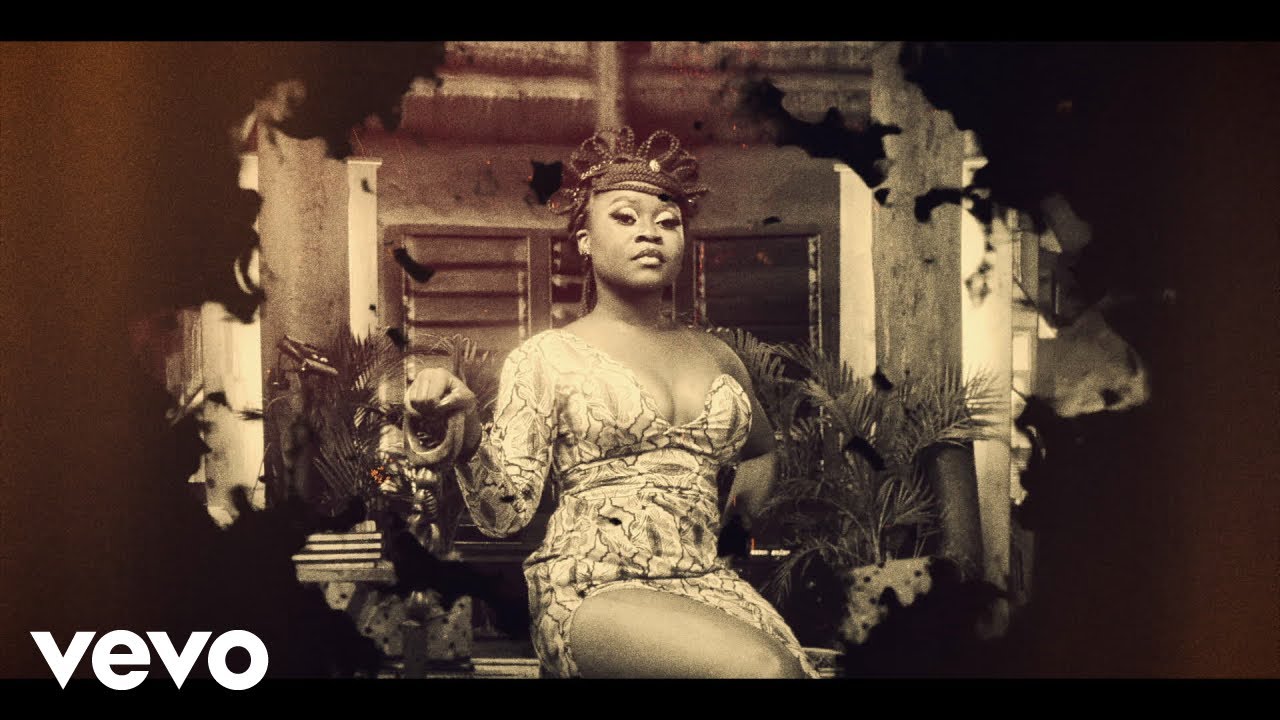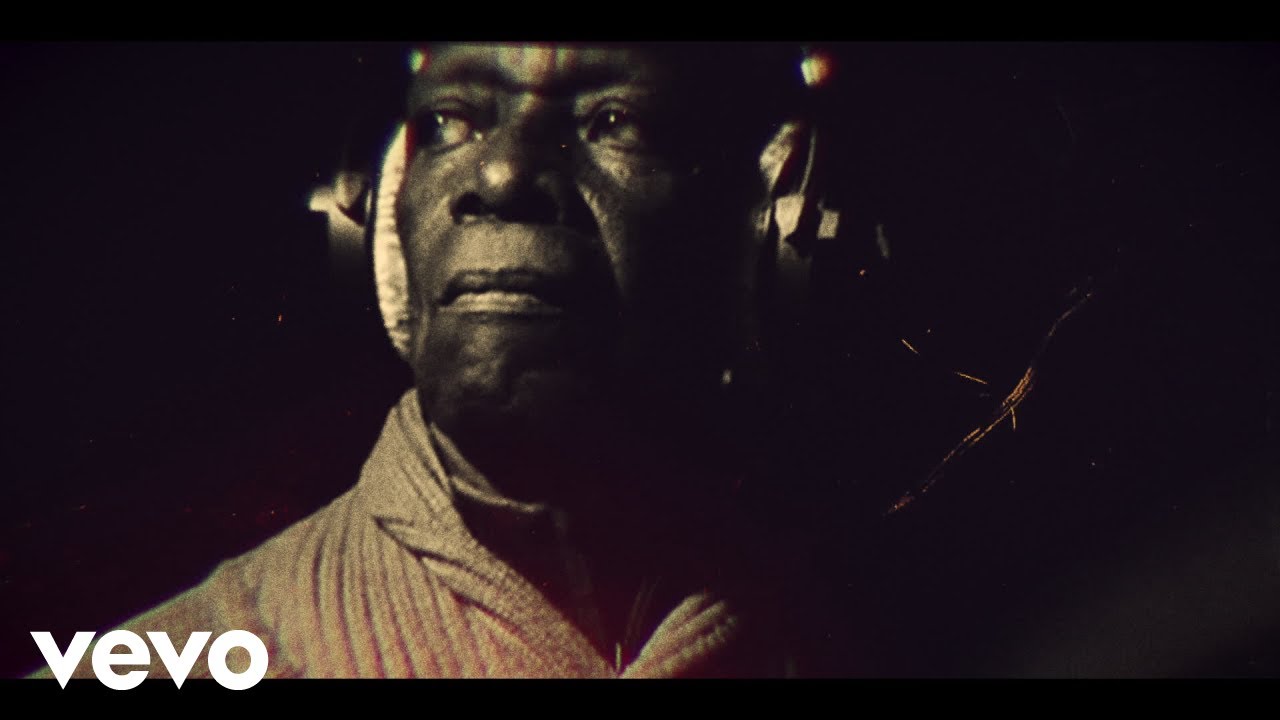When Tony Allen died in Paris at the end of April last year, it came as a surprise despite his advancing years. I’d interviewed him just seven weeks before at the Sony offices in West London. He was in good spirits in anticipation of events planned around his eightieth birthday, and any taciturnity was offset with moments of avuncular warmth and a deep, gruff laugh which came from the diaphragm. Shock lay just around the corner. The world changed quickly and then the Afrobeat progenitor was gone even quicker still. Such a swift exit seemed to be at odds with his indomitable playing, his bullishness, his musical voraciousness… As one of African music’s immortals, you’d have been forgiven for assuming he’d outlast us all. His music certainly will.
It’s fitting then that There Is No End – released a year to the day after his death – wraps things up with a sense of continuity. There’s no disappointment as there is with so many swansongs. Even if Allen takes a literal backseat, allowing his collaborators to shine as he keeps perfect time in the background, it feels like an appropriate way to bow out. Allen’s voice is heard only at the top and bottom of the album, like trusty old bookends, and a brief interlude on the magnificent ‘Cosmosis’ with Skepta and the booming poet Ben Okri, co-produced by an uncredited Damon Albarn.
It features guest appearances from a new generation of rappers and musicians: Skepta and Sampa the Great are names that most will be familiar with; artists like Charlotte rapper Lord Jah-Monte Ogbon and Nairobi’s Nah Eeto bring lesser known quantities but no less impressive qualities to the fray, all cohesively strung together by the Lagos rhythm maestro. Sampa skitters between the bars on ‘Falling Down’ on the opening musical track, bringing big energy to the project; Tsunami brings gangster vibes to ‘Très Magnifique’ with Allen’s intricate snare work alone doing the work of at least two men. It’s an exploratory, ebullient album from start to finish, and one that embodies the insatiable curiosity that led him to work with so many artists from so many different genres, a celebration of collective endeavour and of life itself.
Allen has earned the right to be mentioned in the same breath as his heroes – jazz deities like Max Roach and Art Blakey, or his friend and Africa ‘70 collaborator, Ginger Baker. If all we had to go on was the music he made with Fela Kuti and the subsequent birth of Afrobeat, then that would warrant inclusion into the pantheon alone. He was a natural collaborator who made everything he touched better than it would have been without him, all played with equable power and agile, multi-limbed coordination. No article eulogising his talents is complete without a quote from Brian Eno calling him “perhaps the greatest drummer ever”.
It’s worth remembering though that there was a pause in creativity, and that until recently we were collectively enthralled to a remarkable second act, a prolific final two decades where he was lucky enough to receive his dues as well. His co-conspirator, Fela Anikulapo-Kuti, died in 1997, and its telling that the latter is only being inducted into the Rock & Roll Hall of Fame this year, an artist they can no longer ignore. Allen washed up in Paris in the mid-80s where he remained blighted by heroin addiction for years. Had he succumbed then he may have ended up being brushed aside as a bit part player in the story of Fela Kuti, in the same way Fela himself dismissed him in Fela: This Bitch of A Life, mentioning him offhandedly only once as “Allen, my drummer”.
Greatness certainly wasn’t assured as he trundled through the early 90s in an opioid fug. When I spoke to the French chansonnier Mathieu Boogaerts recently, we talked about the time he played with Allen just before launching his own successful career in the mid-90s: “When my first record was being rehearsed, we formed a band, and at that time he was living in Paris and not many people were interested in him,” he told me. “He was cheap, and not famous, and so when I asked him to play with me he accepted. We did a lot of rehearsals, but it was difficult for me to get from him what I wanted because I was too shy to ask him. I was really young and naive but I have great memories of playing music with him.”
Allen really seemed to get it together again not long after the death of Fela Kuti, with the searing, electro-infused Black Voices in 1999, a record that sounds like the errant father of There Is No End. There’s a great sense of purpose about that record, though the collaborators from the French underground scene – Doctor L producing and mixing, and Fixi playing various keyboards – are not household names. Even in 2003, Allen was astonished when Sebastien Tellier asked him to play on ‘La Ritournelle’, a song that has subsequently become a bona fide classic.
“I didn’t know the guy then,” Allen told me. “He asked me to play on this track and I listened to the music and I was asking myself: ‘Why me? Why does he want me on this piano business?’ It’s a French guy, and there are many French drummers, and his manager said: ‘No, he wants you to play on this record’. And I thought he was a very weird writer.
“So I listened and listened and then I went into the studio and I sat down in the control room listening to this music as I set up my drums. I said, ‘Let’s go for it.’ I told them, ‘It’s just one take I’m doing’. And the music had been laid down already so we weren’t playing together. It was pre-recorded. And I put my drums over it.” Anyone who knows anything about recording will be aghast at the thought of laying down a drum track after the piano track, let alone laying it down so perfectly and in one take.
Work began to accumulate, and soon sessions in his backyard in Paris turned into an awareness generally that Tony Allen was available for hire again, along with a universal acknowledgement of his genius. His time had come once again, but this time it was he who was calling the shots. Having experienced working for so long with a tyrannical figure like Fela, Tony would be able to suit himself, though his easy nature and his superhuman abilities made him an attractive character to collaborate with by all accounts: Matt Black from Coldcut spoke fondly of drinking libations to the ancestors with Tony after they worked on the South African Gqom-infused Keleketla! album together; other artists I’ve spoken to who worked with him speak in awe of him as a man and a musician.
The tragedy that he has been taken is tempered by the knowledge that Allen has enjoyed one of the great denouements to any career, a majestic two decades lived to the full by an artist navigating his way through his sixties and seventies showing artists half his age or younger how things are done. Jazz was his first love and he got to explore that again, as a solo artist and with South Africa’s trumpeting giant Hugh Masekela on Rejoice, put together from sessions in 2012; he got to explore minimal techno with American DJ Jeff Mills on the mind-altering Tomorrow Comes The Harvest EP; he did somewhere between experimental jazz and filmic electronica with Jimi Tenor on Inspiration Information 4 in 2009, and traversed the deeply left field with techno producer Moritz von Oswald’s Sounding Lines in 2015.
So many of his projects gelled, and it’s no coincidence he was at the centre of all of them. There was certainly no end to his talent, and even though he’s been gone a year, There Is No End provides more green shoots and great places to jump off from, to add to all the other incredible music he made before the interregnum and after it. For all the sadness, it’s a wonderful way to say goodbye, a celebration of Tony Allen doing the thing he loved and doing it as brilliantly and as unassailably as ever.




